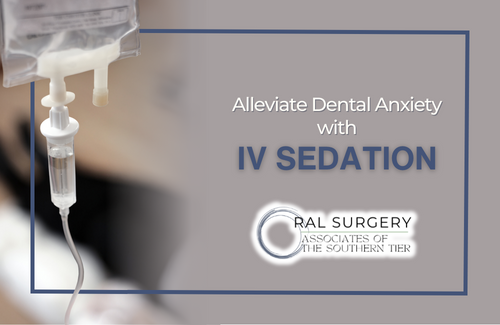Do you have a dental procedure coming up? Is there any part of you that is anxious about it? If so, you are not alone, according to the Journal of Dental Hygiene more than half of adults in the United States suffer from a form of dental anxiety. There are several ways to manage it, including IV Sedation.
There are various forms of sedation dentistry, and IV Sedation, is a technique used to deliver sedative drugs via an intravenous line (IV) directly into the bloodstream to create a calm drowsy feeling, leaving you with diminished awareness during surgeries and/or medical procedures. Don’t confuse IV Sedation with oral sedation or general anesthesia because it is not the same. The unique characteristics of IV Sedation are what makes it beneficial for complex dental work, and these include:
Varying Levels of sedation: IV Sedation dentistry can range from minimal sedation where the patient is awake, but relaxed, to moderate or deep sedation where the patient is barely conscious or unconscious. When there is less sedation the patient can still respond to stimuli and instructions given by the doctor.
Precise Control: With IV Sedation the medication is injected straight into the bloodstream. We are able to have exact control over the degree of unconsciousness the patient needs to maintain during the procedure. This also allows for a swift change in the dosage throughout the treatment to get the right amount of sedation.
Safety and Monitoring: IV sedation enables close monitoring of vital indicators like blood pressure, oxygen saturation, and heart rate. This is especially important when delivering deeper sedation to the patient, and by doing so the patient is guaranteed safety throughout the process. We are prepared to step in at any point if problems arise.
Additional benefits of IV Sedation include: it is fast acting with a rapid recovery rate, it has lesser side effects, and it has fewer risks than other forms of sedation. In addition, IV Sedation avoids using a breathing tube which can make some patients feel increased levels of anxiety. These factors all contribute to the smoother and more successful completion of complex dental procedures, which help
both the doctor and the patient.
IV Sedation is not just for people who suffer from a case of dental jitters. It serves a broader range of patients with diverse needs. Beyond anxiety, it can help people who have teeth sensitivity, gag reflex sensitivity, trouble sitting still for extended periods of time, and individuals in need of considerable
dental work to be done in a single session. If any of this sounds familiar, bring it up to the doctor during your next visit because IV Sedation could be your ticket to a smoother and more enjoyable dental experience.

